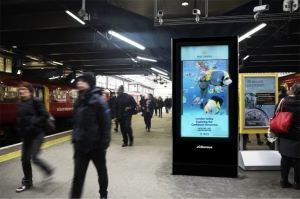by Alistair Dent, Chief Strategy Officer at Profusion
There’s no doubt that the marketing cyborgs are coming. Some are, in fact, already here as the latest innovation step in generative AI poses all sorts of questions about the sector’s future. But are we really in danger of being usurped by our robot overlords?
Ever since ChatGPT launched last November, it would seem that generative AI is all that anyone can talk about. Constituting a major technological leap, the AI-powered chatbot is able to talk in scarily (though not faultless) human-like language and answer almost any question. Core to this is maker, Open’s AI technological breakthrough in prompt engineering – finally creating a model which enables bots to better understand prompts so that even a basic human input can generate a reasonable output. The result? It can hold conversations, follow instructions, write essays, articles and poetry, and even create images and videos.
Cue an inevitable outcry as marketers across the world fear a future in which marketing robots run amok and ultimately take over. However, it is important to remember that we are still at the very early stages of the marketing robotics conversation. Though it does, of course, not take a tech savant to see the direction of travel. Harnessing generative AI to create descriptive language to match personalised product recommendations or targeted promotions could make for a powerful marketing mix. How we get there and what it means for marketers, businesses and the martech industry still remains to be seen.
What we can certainly say at this stage though is marketing automation certainly offers many pros. As with most sectors, there are many marketing tasks that can be mundane, repetitive and require little skill set. Think endless proofreading of marketing brochures and other collateral, mind-numbing admin work, updating databases and managing click-Ads. AI has the ability to tackle all of this quicker and better, so you can utilise staff in the most productive ways and save time and resources in the process.
Digital assistants, such as chatbots, can also prove hugely beneficial in helping you provide a seamless customer contact 24 hours a day – along with detailed, actionable records of your customers’ greatest queries and paint points. What’s most attractive perhaps though is AI’s ability, with programming and machine learning, to tackle huge volumes of data and provide the visibility and insights needed for you to make better strategic decisions in all areas of customer experience, targeting and future forecasting.
However, that is not to say that marketing could ever become the preserve of just machines. After all, the marketing field is a highly creative one, and no current technology, including AI, can replace humankind’s capability of original thought and ingenuity. Inherently, any AI is trained only on pre-existing material, therefore it can only create new content that is similar to that work. This means that it cannot be impulsive or spontaneous, generate fresh ideas or invent anything.
Ultimately, Rome wasn’t built in a day and neither will marketing’s AI future. It will take time, focus, innovation and a deep collaboration. But, in the meantime it is important not to fear it. Providing a unique opportunity for busy marketers and business leaders to offload the monotonous and mundane, and spend more time on the exciting, creative and strategic – it could may, in fact, be something to look forward to.










